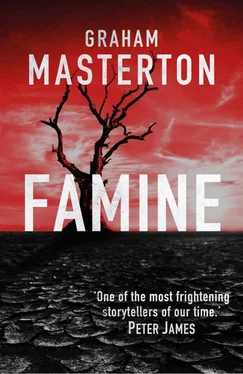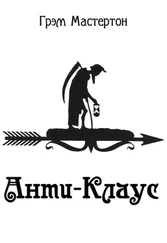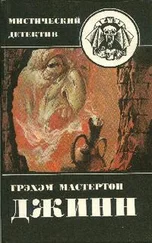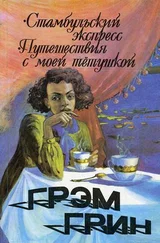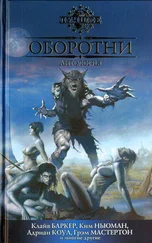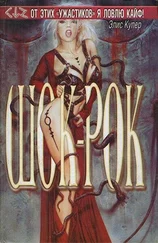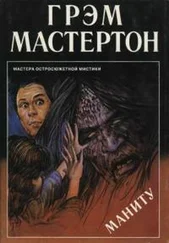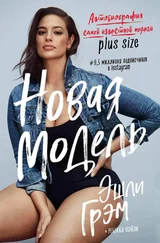The President read out the report to his Cabinet as twilight fell across the White House lawns outside. ‘In the space of a few days,’ he said, ‘this nation of plenty has been reduced to the economic level of a country as poor as Cambodia; and all those pitiful scenes which we have witnessed in Cambodia are going to be witnessed here.
‘There is no question that the blight which has so swiftly destroyed our crops, and the radioactive material which has so effectively contaminated our stores of essential foodstuffs – there is no question at all that these have been deliberately introduced, with the single intention of destroying our country.
‘We do not yet have adequate evidence to pin the blame for these criminal actions on any known adversary. Our first suspect, of course, must be the Soviet Union, but the Director of the Federal Bureau of Investigation tells me that it would have been possible for as few as a hundred agents to have blighted our crops and to have planted those isotopes. Our unknown adversary could have been Iran, or Palestine, or even an unknown political pressure-group from an ostensibly friendly power.’
Just before dark, the President left the Oval Office, and went for a walk in the White House gardens by himself. He smoked two cigarettes, although nobody apart from his wife and his closest friends knew that he was a smoker. After his walk, he closeted himself in his small side office and placed a telephone call to Alan Hedges, the chairman of the Agricultural Committee.
‘Alan,’ he said, ‘I want you to give me an update on the emergency supplies you’ve been shipping in for the administration.’
Alan Hedges said, ‘Pardon me one moment, Mr President… the figures are right here. That’s it… we’ve completed all the shipments of canned goods and stored them in three separate warehouses around the city, as well as five truckloads of special emergency rations out at Anacostia Naval Annex. The rest of the refrigerated goods are arriving by rail just after nine o’clock tonight.’
The President ran his hand tiredly through his thatch of grey hair. ‘That’s okay, Alan, you did well. But I’m afraid we may have an extra problem. You’re going to have to check through those rations and make sure that none of them were produced within the last three weeks.’
There was a short silence, and then Alan Hedges said, ‘Is this on the level?’
‘I’m afraid so. I can’t give you all the details yet, but it appears any food containing any kind of cereal ingredient which was prepared and canned within the last three weeks may have to be considered a hazard to human health.’
‘You can’t tell me anything more than that?’
‘I’m afraid not. But I can assure you that when the time comes to make a public statement, you’ll be the first to know.’
‘Well,’ said Alan Hedges unhappily, ‘I appreciate your confidence in me.’
‘Thank you, Alan. Now will you check out those supplies for me?’
‘Yes, Mr President. Whatever you say.’
Neither the President nor Alan Hedges heard the extra click on their telephone line as Alan Hedges’ secretary Wanda Kaminski put her receiver down, too. And neither of them knew that directly afterwards she dialled the Washington bureau of The New York Times and asked to speak to Bill Brinsky.
The news on early evening television on Tuesday was grim, but less hysterical than before. The networks had all been personally requested by the President to ‘Keep the tone down.’ The crop blight was still spreading, although ‘great and urgent efforts’ were being made in Washington to prepare an antidote. The research had been seriously hampered by last week’s violent killing of Professor Protter, who had carried most of the information he had gleaned from his analysis of Vorar D in his head. Nonetheless, the Department of Agriculture hoped to be able to issue fanners with their first supplies of some kind of antidote ‘within two or three weeks.’
Most major cities in the United States were still under the watchful eyes of the National Guard, the Army, and the Marine Corps. So far, over five thousand men and women had been arrested for looting or for breaking curfews, and twenty eight had been shot dead. Food was being sold only from certain major supermarkets, and each customer was being rationed to twenty-five dollars worth of food at the checkout, although there were no strict checks on how many supermarkets any one customer went around to visit, or even how many times he went through the same supermarket’s checkout in one day.
The front-page photograph of the New York Daily News had shown a two-mile line of shoppers waiting outside the A&P on Third Avenue at 51st Street, some of them with camp-stools and even sleeping-bags. The headline read FOOD LINE BLUES.
At seven o’clock, the President appeared on television again to ‘thank the American people for their calm, their dignity, and their brave acceptance of one of the greatest natural disasters of our time.’ He explained that America’s allies were airlifting food which would be stored all around the country, and sold to the population on ration ‘when the time for such extreme measures eventually comes.’ He was giving out no hints yet that the crop blight had been started on purpose – despite what Ed Hardesty had said on Sunday night – and he deflected questions from the press that the approaching famine might have been caused by Soviet sabotage.
Another question he ducked was, ‘Where is Senator Shearson Jones? Have you talked to him yet? Has he answered Mr Ed Hardesty’s allegations that the blight was allowed to spread so that he could line his own pockets? And, come to that, where is Mr Ed Hardesty?’
The President left the lectern, with its Presidential seal and its screen of bulletproof plastic, and waved to the press as he left the room without even turning back to look at them.
George Bannon, of the Washington Post , said, ‘Something tells me we’re being strung along for some reason or other. My nose itches, and when my nose itches, that means trouble.’
‘When my nose itches, it means hay fever,’ replied Bill Brinsky, tucking his notebook back in his pocket. Then he left the press room to go back to his typewriter, and his half-finished story for tomorrow morning, which began, ‘Sources close to the President have revealed that the nation’s food crisis, already worsening by the hour, may be exacerbated by yet another problem… apart from the continent-wide crop blight. It appears that for reasons yet unexplained, any food containing cereals that was prepared in the last three weeks may be dangerous to human health. This leak, although still unconfirmed, comes from a highly reliable quarter; and if the White House does confirm it, the nation will be facing not only the total destruction of its crops and livestock, but anything up to forty per cent of its existing food stocks.’
That Tuesday evening, ignoring the imposition of a curfew at sundown, thousands of ordinary families, both black and white, marched along St Paul Street in Baltimore to City Hall. They carried burning torches and home-made banners which read SURVIVAL OF THE FITTEST? and OUR FIRST CIVIL RIGHT – FOOD. The National Guardsmen who watched them shuffling silently through the warm darkness, men and women with confused but determined faces, babies in strollers, old people in wheelchairs, had been ordered not to shoot until the parade had dispersed. One of the Guardsmen, interviewed by a roving television camera, appeared on the screen with tears running down his cheeks. ‘They can order us not to shoot our people,’ he said, ‘but they can’t order us not to cry for them.’
In New York, where the Mayor had been making every effort to keep the city as quiet and as normal as possible, there were new fires in Queens and in Harlem, and nearly three hundred black youths broke into the Four Seasons Restaurant on 52nd Street, bludgeoning police and security guards and stabbing two waiters. They rampaged across tables, splashed in the ornamental pool, and strewed oysters and roast game and wine bottles all over the floor. ‘It was like something out of a Fellini movie,’ said Norman Cramer, the movie producer, whose wife suffered a dislocated shoulder. ‘There were all these savages out of the streets, dancing on plates of veal and asparagus in filthy sneakers, and sluicing themselves with Dom Perignon.’
Читать дальше
